Anthony Albanese woos business leaders, quiet on union-backed IR laws at BCA annual dinner
Anthony Albanese has offered business no compromise on union-backed IR laws and defended his reform agenda, in a conciliatory speech seeking an unlikely ceasefire with angry employers.
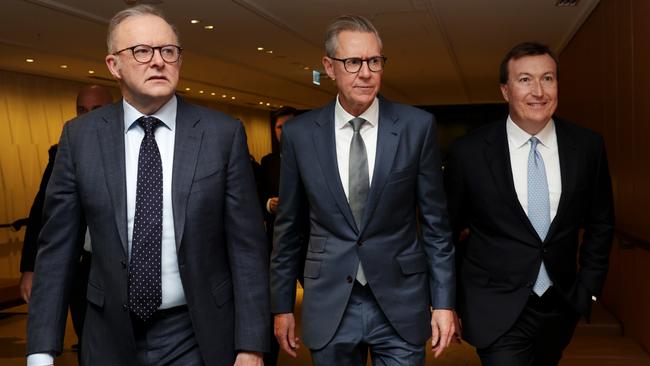
You can now listen to The Australian's articles. Give us your feedback.
Anthony Albanese has offered business leaders no compromise on Labor’s union-backed industrial relations laws and defended his government’s reform agenda, in a conciliatory speech seeking to strike an unlikely pre-election ceasefire with angry employers.
In a speech delivered before the Prime Minister’s address at the Business Council of Australia annual dinner on Tuesday night, BCA president Geoff Culbert hit back at populist bashing of business and warned about the consequences of “making success taboo in this country”.
The showdown between chief executives and Mr Albanese in Sydney came as the government refused to address private sector concerns about new IR laws, regulatory burdens and reform paralysis that have become a lightning rod for big and small business.
Reverting to pre-2022 election rhetoric that he is “pro-business and pro-worker”, Mr Albanese pleaded with corporate Australia to work constructively with his government because “points of disagreement have never defined or diminished our engagement”.
Avoiding any reference to IR laws, Mr Albanese issued a veiled critique of former ACTU secretary Bill Kelty after the key architect of the Hawke-Keating era chided the government for being “mired in mediocrity” and abandoning big reforms.
Mr Albanese cited recent legislative wins on aged care and NDIS as “proof that economic reform is not confined to a vanished golden age, it remains our challenge to meet and our opportunity to seize”.
“I am optimistic that government and business can do this together. By recognising each other’s strengths, respecting each other’s views and valuing each other’s contribution. We have different responsibilities that demand different approaches, so it is inevitable we will have occasional differences of opinion,” Mr Albanese said.
Facing a private sector revolt and cashed-up election campaigns by industry groups railing against Labor policies, Mr Albanese ruled out a climate trigger deal with the Greens and pledged to shield companies from anti-business policies.
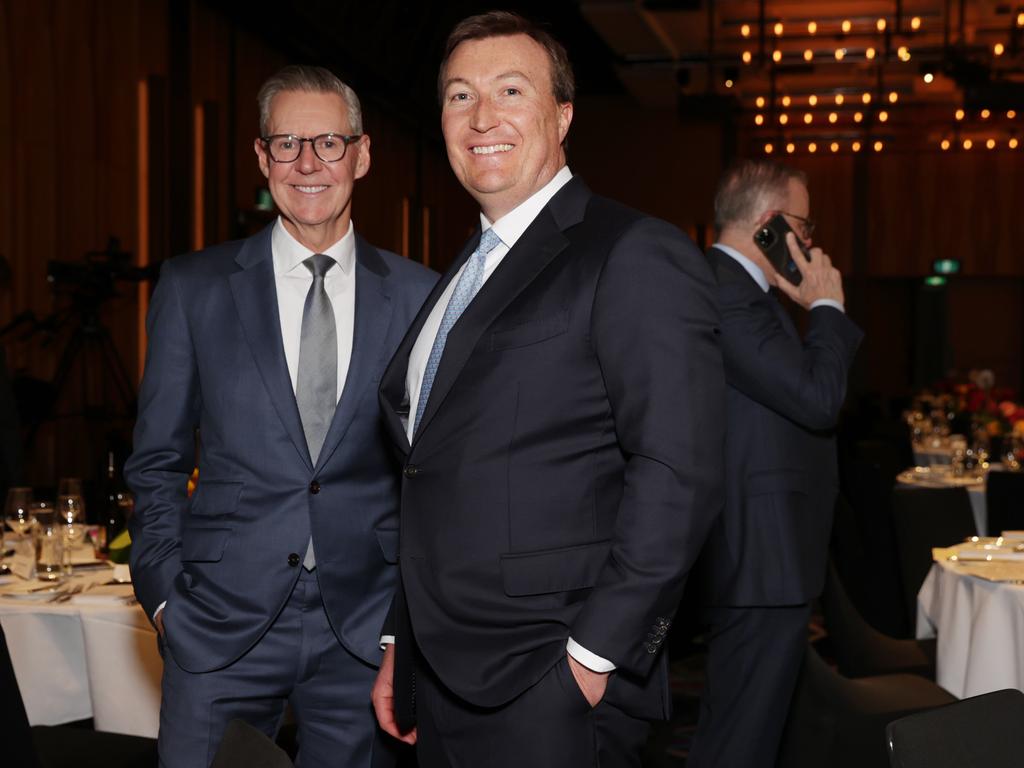
Mr Albanese said Labor’s tougher safeguard mechanism, requiring big polluters to cut emissions faster, meant there was no need for “gesture-based climate amendments advanced by the Greens political party to our Nature Positive legislation”.
The Prime Minister’s peace offering followed a frosty reception from miners last week after he told them the country would fall behind the world if people abandoned co-operation for conflict and listened to “those who spend all their time talking Australia down and saying our companies can’t compete and our workers shouldn’t try”.
Amid blowback against companies over bumper profits and following business crusades including backing Labor’s renewables revolution and doomed Indigenous voice referendum, Mr Culbert conceded much of the anger directed at the private sector was “self-inflicted”.
“We have scored too many own goals, and we have to take responsibility for that,” Mr Culbert said.
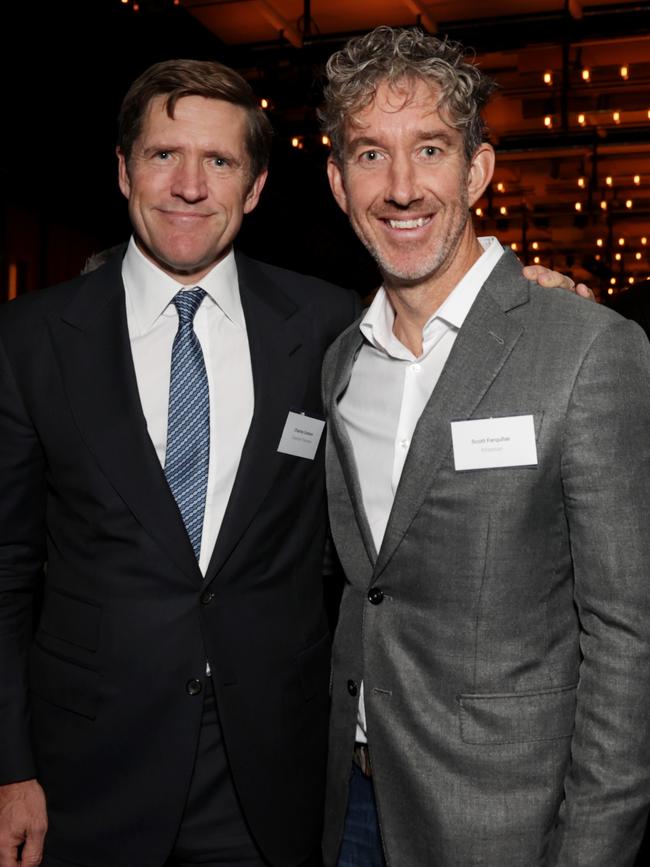
But he warned there was now a “material and concerning disconnect between the negative way in which business is perceived, and the positive value it creates for Australia”.
“Somewhere along the way, business has become a convenient scapegoat for all manner of challenging issues, and it’s coming from all sides of politics,” Mr Culbert said.
In his speech, BCA chief executive Bran Black warned companies were more cautious about hiring following Labor’s IR shake-up and that major employers were actively choosing to invest overseas. Speaking in front of Mr Albanese, Jim Chalmers and other cabinet ministers, Mr Black called for the abolition of new multi-employer bargaining laws.
Mr Culbert, who pushed back against Coalition divestiture proposals, the Greens’ Robin Hood taxes and Labor’s “counter-productive” IR laws, said: “The cycle of populist short-term thinking and scapegoating of business has to stop. We will support good ideas regardless of which side of politics those ideas come from. At the same time, we will argue strongly against any short-term, populist policies.”
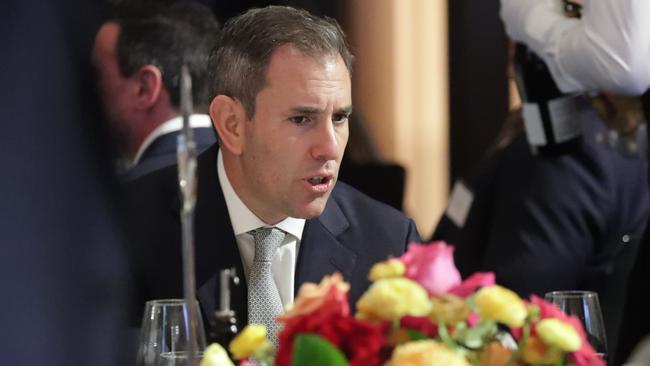
Mr Albanese told business leaders his government had stood with them against “extreme anti-business policies” proposed by the Greens, crossbenchers and Coalition. “We’ve stood up for some of Australia’s biggest employers, when others have attacked you for holding a view different to their own,” he said. “We don’t do any of this because it’s politically convenient. We do it out of respect for what you do – and because we value what you say.”
He said that, in a healthy democracy, everyone was entitled to put forward views but those ideas must “stand on their merits and withstand public scrutiny … economic and social change is not delivered via ultimatum, it’s built by consensus and strengthened by the mandate of the people”.
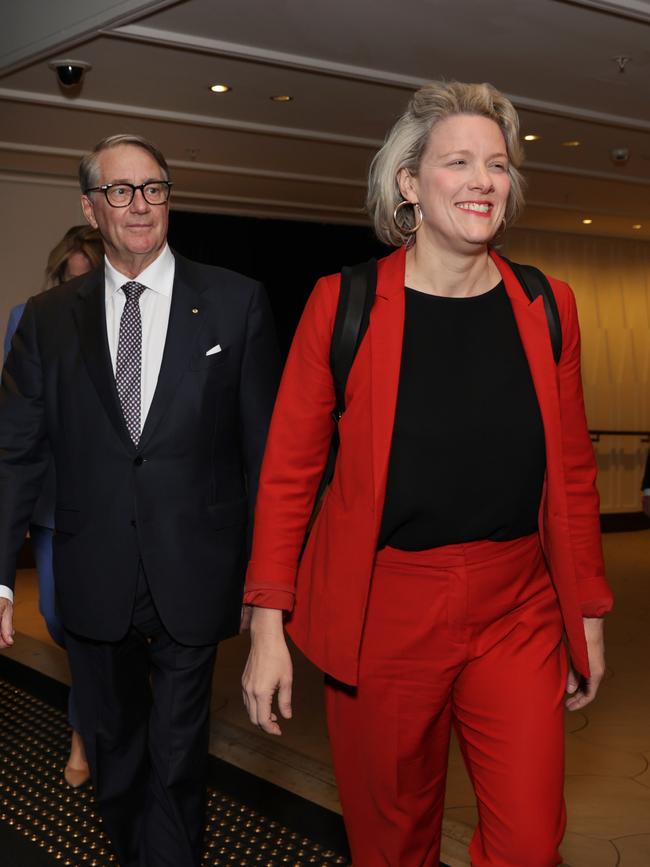
The BCA is preparing election campaigns focused on the cost-of-living crisis, the housing shortage, the future skilled workforce and achieving net-zero emissions by 2050 while ensuring affordable and reliable energy.
With businesses employing six out of seven working Australians and underwriting successive federal budget surpluses through $145bn in taxes paid, Mr Culbert said: “Why would anyone want to invest in Australia where even a modicum of success is criticised? Why would anyone want to invest in a country where a 4 or 5 per cent profit margin gets you an accusation of price gouging and a call for divestment?”
Mr Culbert, a former Sydney Airport chief executive who became BCA president in February, warned that rather than celebrating the powerhouse mining and higher education sectors “we seek to slow them down”.
He also warned of the dangers of populism.
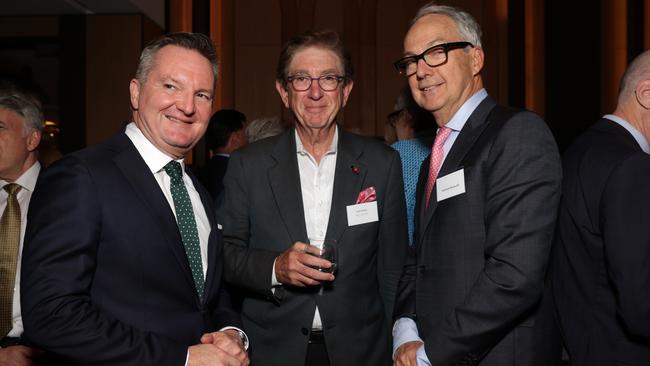
“What we’re seeing around the world provides an important lesson in how quickly unity can fragment when self-interest trumps national interest, and populism takes hold,” he said.
“It creates a wedge that gets exploited by minority interests. A strong and successful nation is one where business respects the role of government, and where government respects the role of business.”
Council of Small Business Organisations Australia chief executive Luke Achterstraat, who attended the dinner, joined big business leaders in pushing back against Labor policies.
“If the federal election is a referendum on the cost-of-living relief, it is also a referendum on support for small business,” Mr Achterstraat said.
“It is no secret that a raft of regulation for its own sake is hurting business, particularly small operators without internal HR or compliance teams to keep pace with complex change.
“Without small business, Australia faces higher prices for longer and a lack of genuine jobs, especially in the regions. Whether it is workable industrial relations, sensible migration settings or affordable energy, pro-small business policy commitments may very well determine the balance of power in the next parliament.”
Mr Culbert said when he referred to business he was invoking big and small businesses, with the exchange between them valued at $700bn per year, which is close to 30 per cent of the economy.


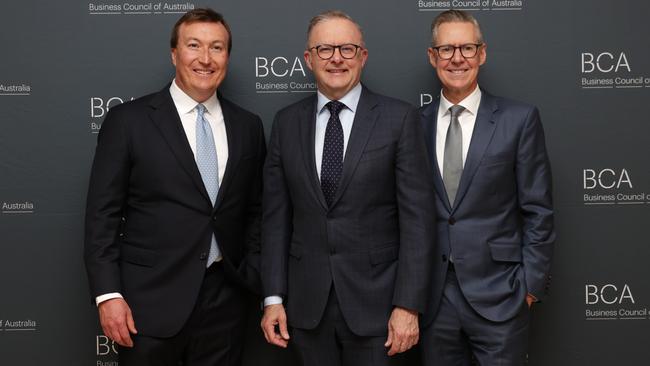
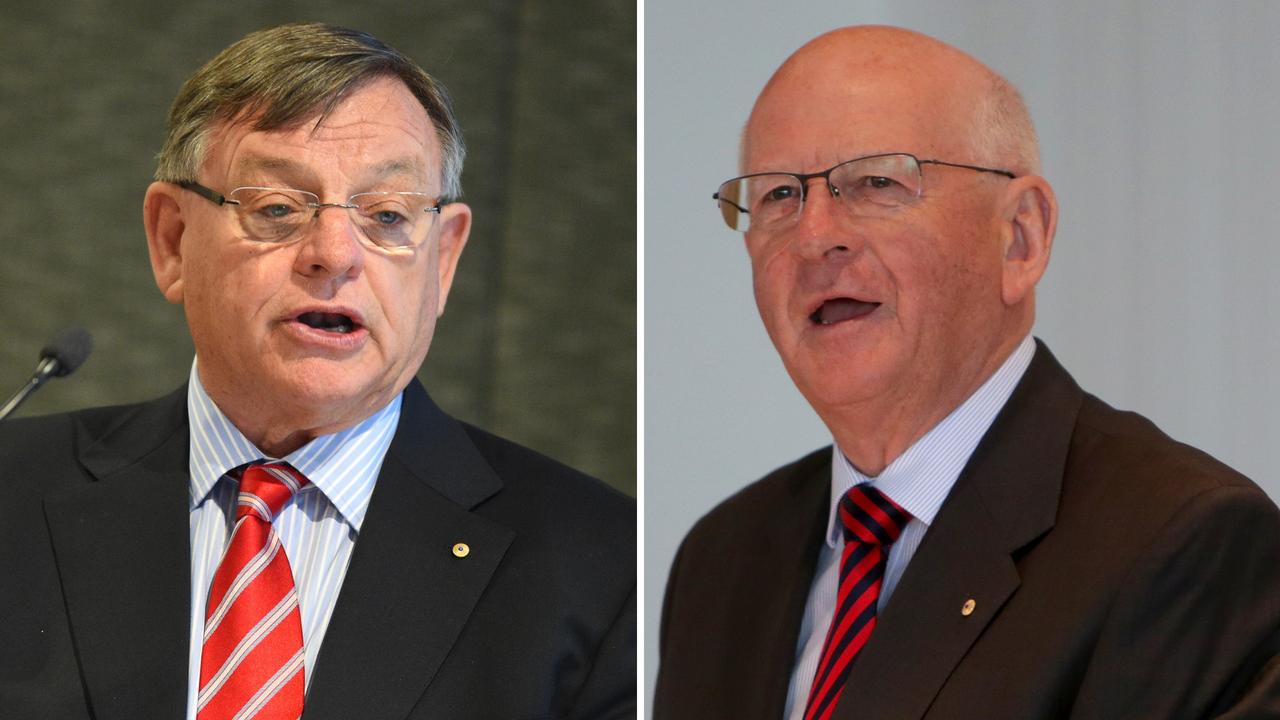
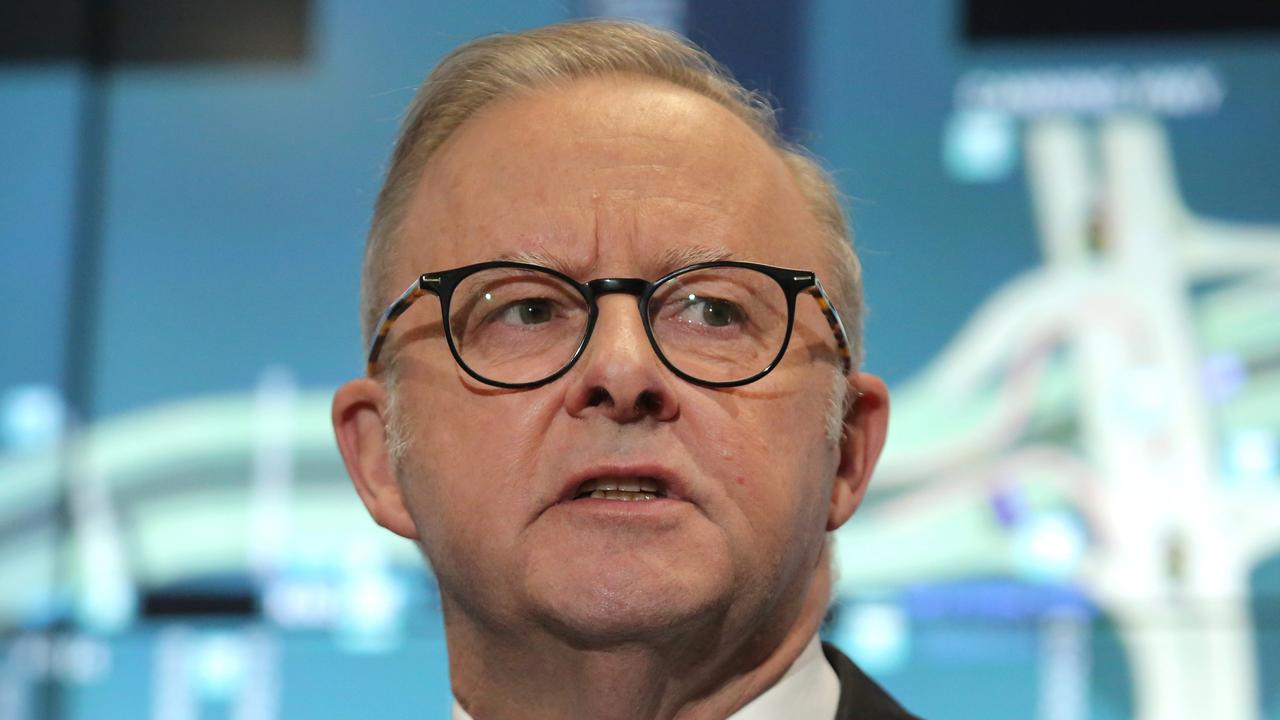
To join the conversation, please log in. Don't have an account? Register
Join the conversation, you are commenting as Logout